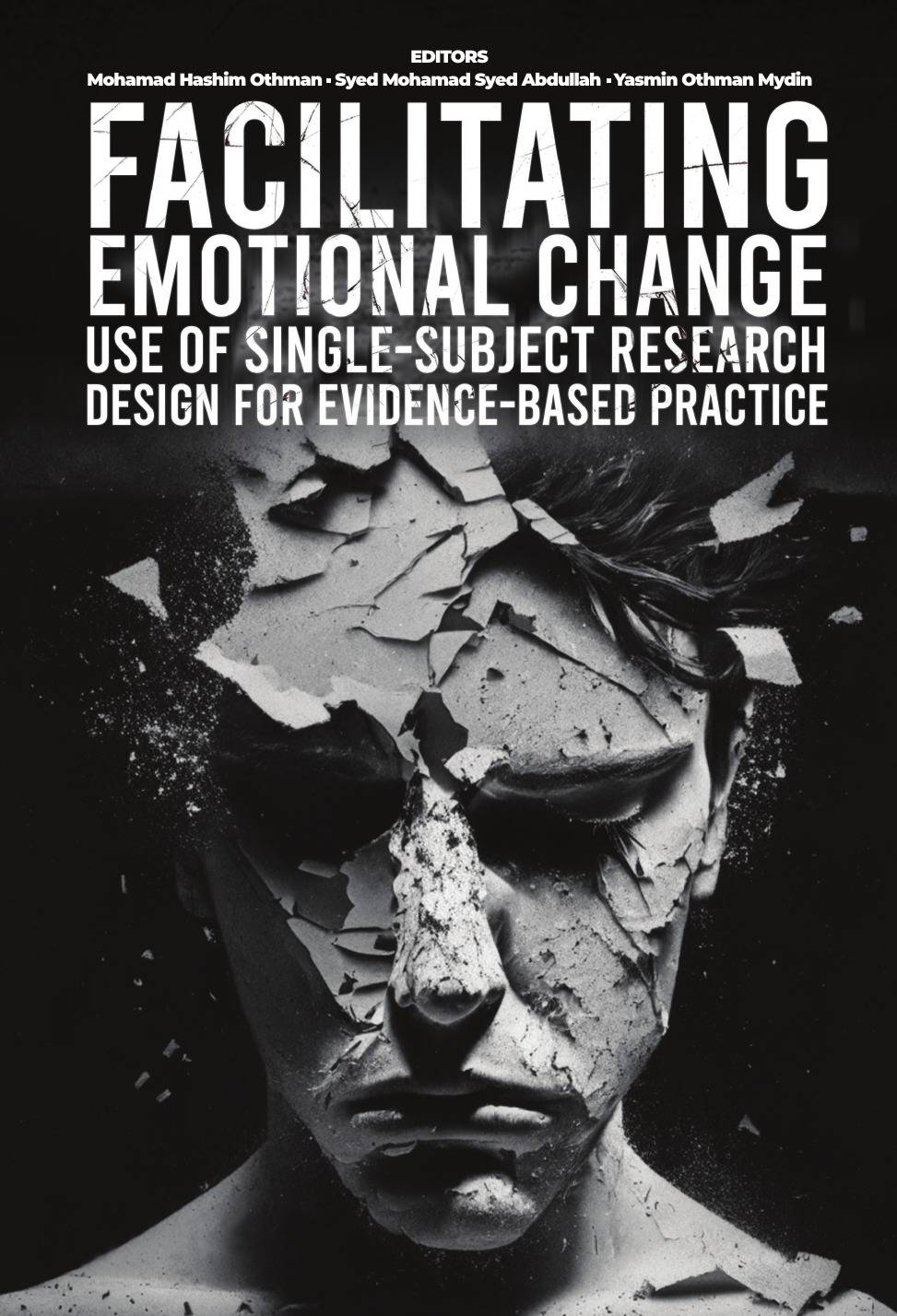Facilitating Emotional Change: Use Of Single-subject Research Design For Evidence-based Practice

Title: Embracing Diversity In Psychological Assessment And Research
Editors: Mohamad Hashim Othman, Syed Mohamad Syed Abdullah, Yasmin Othman Mydin
Price: RM38.00 ISBN: 978-967-461-822-3
Counselling intervention is a strategy and technique introduced by the counsellors to help the clients to deal with various issues and to move toward the goal. Recently, emotional and feeling issues are often faced by clients regardless of age, status, culture, or religion. Various strategies and techniques have been implemented in counselling sessions to help improve the clients' orientation to the environment and to help them move into action. However, there is a new interest in the professional counselling community requiring counsellors to provide evidence of the effectiveness of interventions to clients, families, and administrators. Information on the effectiveness of the intervention allows the clients, families, and administrators to continue treatment with confidence and trust in the treatment the clients receives from the counsellors. For this purpose, the single-subject research design (SSRD) approach is widely used in evidence-based practice in counselling and conducting research. SSRD has been described as any research involving one subject or one group that is treated as a single entity. The essence of single-subject design is using repeated measurements to understand an individual's variability to determine what are the effects of the treatment. The SSRD approach can assist counsellors in preparing evidence-based practice and scientifically conducted reports on the effectiveness of interventions and determining which treatment procedures result in the most effective and efficient emotional change. This book discusses various cases of emotional issues and techniques carried out by counsellors in counselling sessions. Details on the implementation of counselling strategies and techniques for each case are discussed in each chapter of this book. Therefore, this book is suitable for reference by undergraduate and postgraduate students in counselling, psychology, nursing, social work, pharmacy, and other areas in the helping professions.
- Hits: 829




